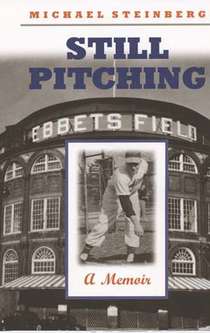Facts and Imagination in Memoir and Family History
Biff Barnes
In writing a memoir or family history is your goal a factual retelling of your memories of your life story or those of your ancestors? Or is it to imagine what it must have been like to be a particular person living at a particular time and place? Is your goal to write a personal history or a piece of creative non-fiction or to blend the two?
Richard Gilbert in his blog Narrative uses a recent interview in The Writer’s Chronicle to explore these questions. Faye Rapoport Des Pres conducted the interview with Michael Steinberg, author of Still Pitching, a memoir of growing up in New York in the 1950s.

At the core of a memoir [And I believe a family history as well.] are facts often based on extensive research. Says Steinberg, “Memoirs are set in real time and in real places, and they include real people and real events. Whatever else we think of the form, none of us would be inclined to trust a writer who fabricated those things. It goes without saying that a memoirist’s credibility, like the journalist’s, rests in part on those things that can be verified, even fact checked.”
But the memoirist or family historian must make an important decision about what to do with the facts. Are the facts a limit or a point of departure?
In Steinberg’s view a writer needs to add creative elements to the facts to get at the real story. He said, “…in my memoir Still Pitching I needed to re-imagine my childhood in order to better understand it. This was the only way I could express and articulate what it felt like to be that kid growing up in New York at that particular time in history (the ‘50s). In order to understand your past—in my case, childhood—you have to be able to imagine that past and the person you once were.
Choosing that course may depart from the strictly factual.
But by using the facts of the historical context in which the people about whom you write lived, you stand a much better chance of using you imagination to bring them to life for your reader.
Click here to read Richard Gilbert’s full post on Narrative.